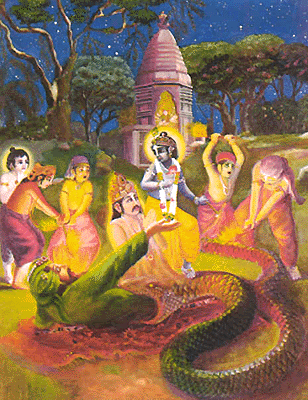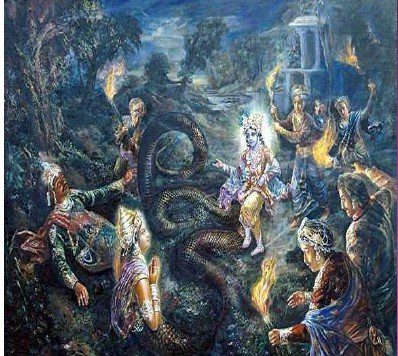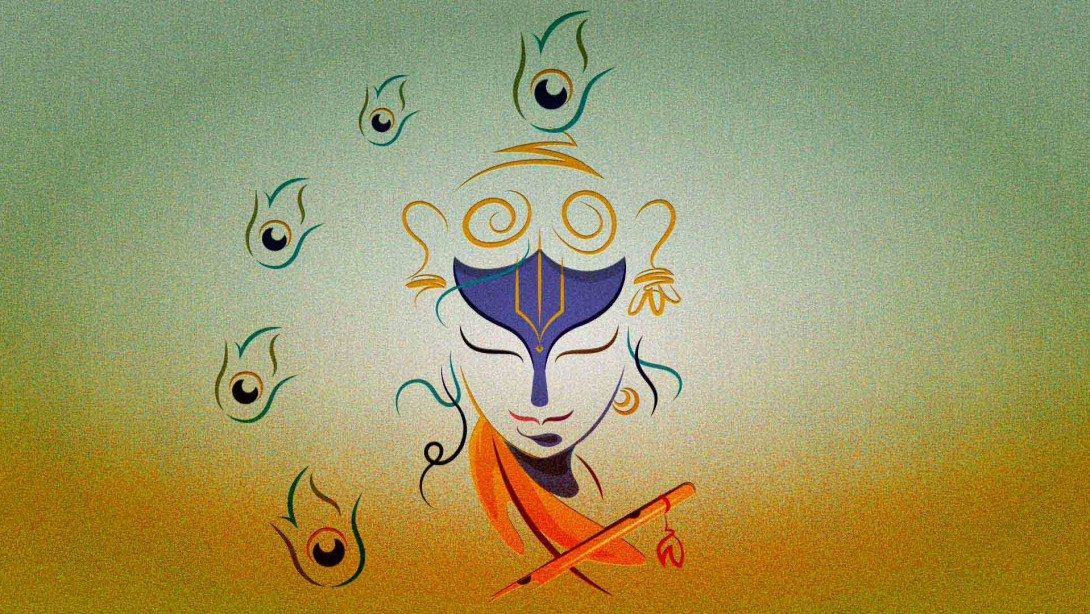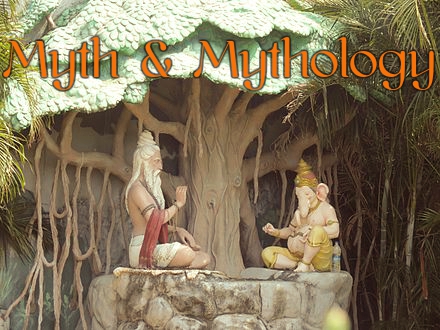Nilanjana retells a story from the Srimad Bhagavatam, telling us about the nebulous boundaries of blessing and curse, in the weekly column, exclusively for Different Truths.
Sukha continued narrating the stories that his father Ved Vyasa had written. As he was about to begin the next story, a mystical smile lit up his face, “Sometimes we may not know what a blessing is and what a curse is!”
Parikshit immediately responded, “Oh yes, our understanding is always very limited. In fact most of the time we don’t really understand what is going on but we think we do.” He remembered his own folly that had led to the curse of his death and how he was slowly being granted the boon of knowledge through the various stories that Sukhadeva was narrating to him.
 Sukha said, “The cowherds in Vrindavan were celebrating the festival honouring Lord Mahadeva. As per the rituals, they all travelled to the grove called Ambikavana. There they took bath in the sacred river Saraswati, offered prayers to Devi and Mahadeva, donated cows to the brahmins and followed the rites and rituals for completing the festival. Since the location was far away from their homes, they decided to stay back that night on the banks of the river.
Sukha said, “The cowherds in Vrindavan were celebrating the festival honouring Lord Mahadeva. As per the rituals, they all travelled to the grove called Ambikavana. There they took bath in the sacred river Saraswati, offered prayers to Devi and Mahadeva, donated cows to the brahmins and followed the rites and rituals for completing the festival. Since the location was far away from their homes, they decided to stay back that night on the banks of the river.
Quite late at night, a huge python that lived in the surrounding forest crawled out and gulped Nanda. In a panic, Nanda called out, “Krishna, Krishna.” His neighbours woke up, saw the scary sight and called for help. They also lit torches and tried to frighten the snake away. The snake was not bothered and continued to gulp Nanda down.
When Krishna saw what was going on, he casually walked up to the python’s tail. Then slowly and steadily, he touched the snake with his feet. Suddenly the python changed into a handsome celestial being. He was glowing as he smiled around at everybody. He then prostrated before Krishna and thanked him.
Krishna asked, “You are so handsome and you are a celestial being too. How come you had assumed the form of a python? Why this misfortune?”
“I am a Vidyadhara (semi-divine being), my name is Sudarshana. I used to stay in the heavens and was  famous there. My wealth and good looks made me very arrogant. I would often keep laughing at others around.
famous there. My wealth and good looks made me very arrogant. I would often keep laughing at others around.
Once I laughed at a group of, what I thought was very ugly, rishis (sages). Unfortunately, they happened to be the rishis known as Angirasas. They cursed me and hence I had to inhabit the earth in the form of a python. Now that your sacred feet have released me from that birth, I am not sure if that was a curse. I feel I was blessed to see divinity in a human form and experience the sacred touch. I seek your permission to go back to my home in Gandharvaloka.”
Sudarshana left for his abode, but the gopalas (cowherds) could not sleep the whole night. They kept on discussing all the miracles that Krishna had performed and their special fortune to be blessed by such a divine presence…”
[To be continued]
Footnote: Srimad Bhagavatam is often called the Bhagavad Purana. Authored by Ved Vyasa, the stories are about the various avatars(incarnations) of Lord Vishnu, also known as Narayana. These stories are narrated by Ved Vyasa’s son Sukhadeva to King Parikshit.
©Nilanjana Dey
Photos from the Internet
#Krishna #VedVysasa #BhagavadPurana #Narayana #Gopalas #Ambikavana #Vidyadhara #Avatar #CurseAndBlessings #MythAndMythology #DifferentTruths






 By
By


 By
By